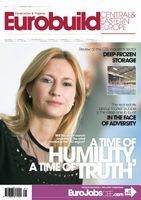Eurobuild CEE’s special December conference brought together financiers, bankers, developers and real estate experts,
all anxious to find the answer to the big question of the year At the end of 2008, the eternal question “To be or not to be?” seemed to have been revised to “Crisis or correction?”. While few doubt that the Western economies have entered what might be a long recession, the situation in CEE countries, especially Poland, is still generating a lot of debate. This is why ‘Eurobuild CEE’ decided it was the right moment to gather optimists, pessimists and realists to discuss the effects of the global financial crisis. The result was the ‘Crisis or correction’ conference, which was held on December 9th in the Hyatt hotel in Warsaw.Capitalism is not deadWhen it comes to coping with critical situations there is no better person to open a conference than Prof. Leszek Balcerowicz, the former deputy prime minister, finance minister and




























































